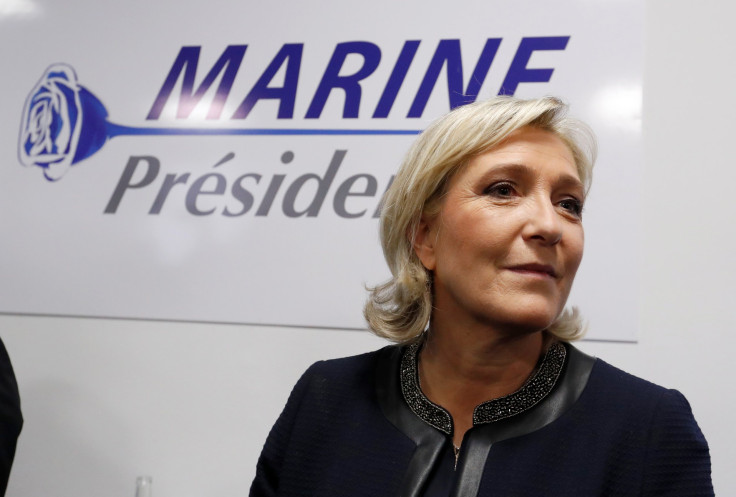Rights For Migrants: Marine Le Pen Wants To Ban Foreign Children From French Public Schools

Far-right populist Front National party leader Marine Le Pen called Thursday for targeting undocumented immigrants with dramatic welfare cuts, including free public education, which is available to all citizens.
“I’ve got nothing against foreigners but I say to them: If you come to our country, don’t expect that you will be taken care of, treated [by the public health system] and that your children will be educated for free,” said Le Pen, a candidate in the nation’s 2017 presidential elections, the AFP news agency reported. “That’s finished now, it’s the end of playtime.”
Le Pen—who is trailing her main opponent, former prime minister and center-right candidate Francois Fillon, by 5 percent—is popular among blue collar workers, according to data from the market research firm Ifop (Institut francais d’opinion publique). While she stands to win 24 percent of the general election first round overall, compared to Fillon’s 29 percent, her share of the vote among factory workers was 49 percent, far ahead of Fillon’s 20 percent, according to the Ifop polling data. The candidate in third place, Emmanuel Macron, garnered only 13.5 percent.
The Front National leader took over the party after her father, Jean-Marie Le Pen, resigned in 2011, and has sought to expel him from the party over his anti-Semitic comments. While distancing the Front National from her father’s tendencies, Marine Le Pen has a long track record of disparaging Muslims and enjoyed large party gains in the 2015 regional elections that followed the Nov. 13, 2015 attacks in the French capital.
Le Pen is not alone in Europe in terms of attempting to limit aid to undocumented migrants seeking refuge from wars in their home countries. The German government announced in mid-October that it planned to shift public welfare responsibilities to refugees’ home countries for their first five years of residence in Germany.
France fielded 70,570 asylum applicants in 2015, up from 58,845 in 2014, according to data from Eurostat. That’s 5.6 percent of the total number of migrants applying for refugee status in the EU, far below Germany’s 35.2 percent.
The vast majority of refugees migrating to Europe, according to Eurostat data, come from Syria, where a five-year civil war has killed around half a million people, along with Iraq, which has been ravaged by the Islamic State militant group over the past two-and-a-half years, and Afghanistan, where Taliban militants remain a dominant force.
© Copyright IBTimes 2024. All rights reserved.












